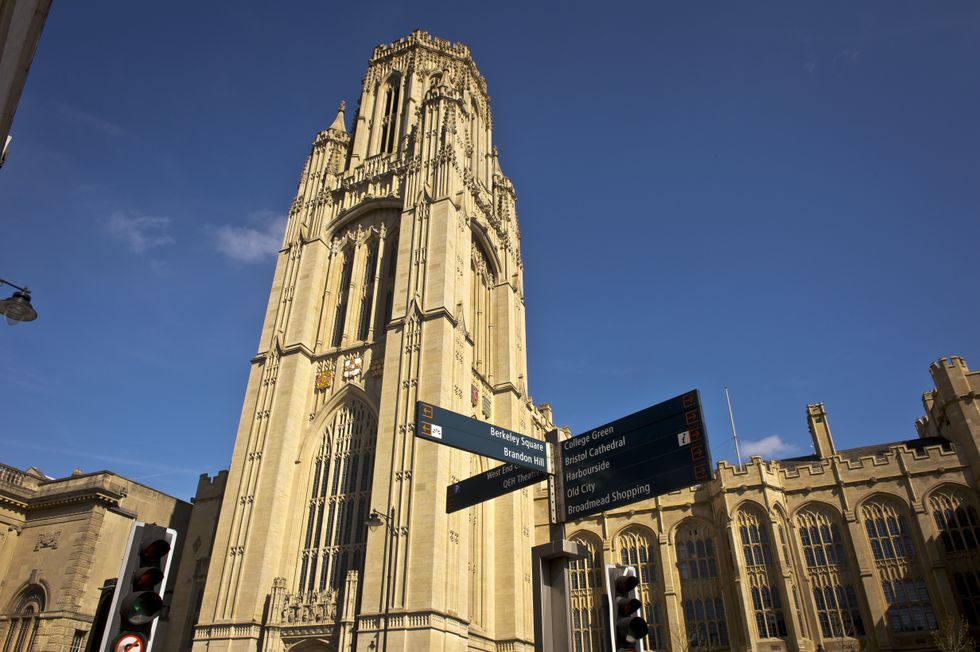Universities accused of giving non-white teenagers lower offers
Ex President of Oxford Union James Price hits out after George Abaraonye-Charlie Kirk controversy |

The University of Bristol, University of York and the Royal Agricultural University are at the centre of an investigation
Don't Miss
Most Read
Trending on GB News
Several British universities face accusations of offering reduced entry requirements to teenagers from ethnic minority backgrounds.
Some institutions explicitly listed non-white ethnicity as a qualifying criterion for contextual admissions schemes.
An investigation has revealed that institutions operate programmes where students from black or Asian backgrounds can receive offers requiring grades significantly below standard entry requirements.
This includes the University of Bristol, University of York and the Royal Agricultural University.
TRENDING
Stories
Videos
Your Say
At Bristol, pupils from black or Asian families can access programmes leading to guaranteed interviews or offers typically two grades below normal requirements.
York operates a "black access" programme alongside its standard widening participation scheme, whilst the Royal Agricultural University lists being non-white as one of five criteria making candidates eligible for reduced offers.
Parents have raised concerns about wealthy students receiving contextual offers based on ethnicity, reports The Times.
One mother from southeast England reported that children of investment bankers and surgeons at her daughter's selective school were receiving reduced offers from Bristol University if they had one parent born overseas.

The University of Bristol has come under the spotlight for the scheme
| PA"A lot of these students passed the 11+ entrance exam and have professional parents on high salaries," she said, describing recipients as living in expensive properties.
She questioned the rationale: "The contextual offers mean the students can be accepted to university with two grades below the entry requirements, which makes one wonder why the minimum entry requirements are there in the first place."
The mother described the practice as "at best, gamification or at worst, some form of discrimination."
Freedom of information data obtained by The Daily Telegraph reveals that sixteen per cent of black UK undergraduates at Oxford University failed to meet their specified grades over the past five years, compared with six per cent of white British applicants and two per cent of Chinese applicants.
LATEST DEVELOPMENTS
 Oxford University usually expects students to achieve between A*A*A and AAA in their A-levels | PA
Oxford University usually expects students to achieve between A*A*A and AAA in their A-levels | PAThe figures show that sixty-one per cent of black Oxford entrants come from the most deprived areas, whilst only sixteen per cent of white applicants fall into this category.
Chris Philp, the shadow home secretary, responded to the findings: "Universities should be admitting based strictly on merit alone, and not engaging in social engineering."
He warned: "If we are not a rigorous meritocracy, academic standards will fall and universities in other countries that maintain higher standards will overtake us."
Universities defend these practices as necessary to meet regulatory requirements from the Office for Students to increase representation from disadvantaged backgrounds
A University of Bristol spokeswoman noted their programme was always oversubscribed, whilst York stated contextual offers were "just one way of recognising that there are significant barriers for some in realising their full academic potential."
Oxford University maintained that "admission to Oxford is based on merit and academic potential," insisting all students "fully deserve their places here."
Nick Hillman, director of the Higher Education Policy Institute, suggested universities might view contextual offers as "a quick fix" for meeting diversity targets, particularly as Russell Group institutions face declining overseas student numbers.
Universities UK is collaborating with Ucas and The Sutton Trust to develop more transparent and consistent criteria for contextual admissions.
More From GB News











